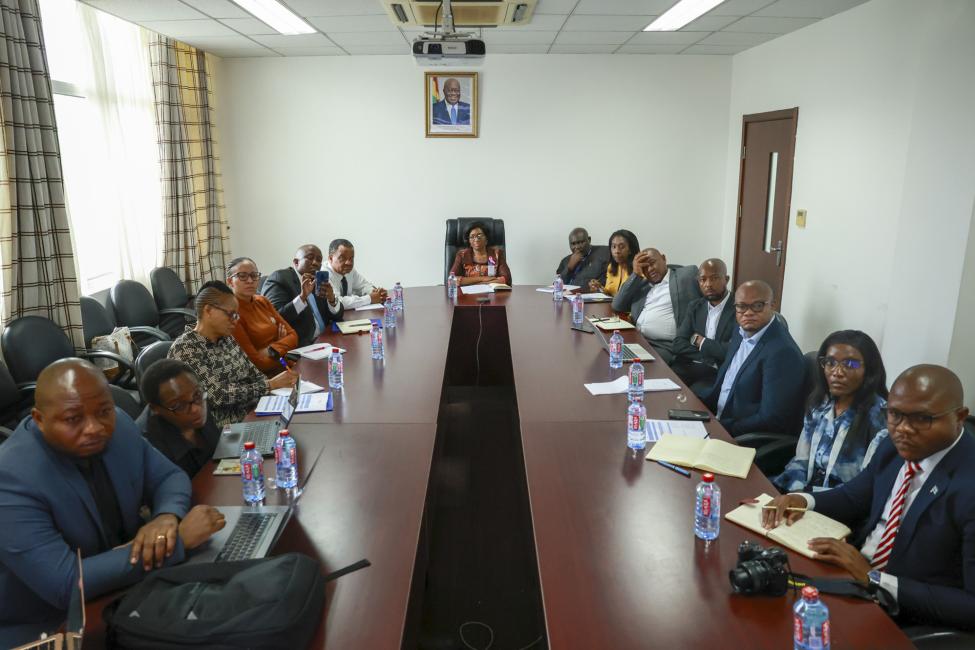In an increasingly interconnected world, the concept of dual citizenship has gained prominence as nations recognize the potential of their diasporas to contribute to national development. Ghana, with its long history of migration and a growing global diaspora, stands to benefit immensely from the opportunities dual citizenship provides. The Ghanaian government’s recognition of dual nationality, formalized through the Citizenship Act of 2002 (Act 591), has paved the way for many Ghanaians living abroad to reconnect economically and socially with their homeland.
Beyond symbolic attachment, dual citizenship is becoming a strategic economic tool. It provides Ghanaians abroad with the legal rights and institutional access needed to invest, establish businesses, and contribute to national growth. This policy aligns closely with the objectives of the Ghana Investment Promotion Centre (GIPC) and the Diaspora Affairs Office at the Office of the President, both of which encourage investment flows from the global Ghanaian community. You can also contact us via Diaspora Affairs GH.
1. Easier Access to Local Markets and Business Registration
One of the most immediate advantages of dual citizenship is the ability to operate within Ghana’s business environment as a full citizen. Ghana’s investment laws, as administered by the GIPC, differentiate between foreign investors and citizens regarding business registration, equity participation, and capital requirements. For example, foreign-owned businesses are typically required to meet higher minimum capital thresholds under the GIPC Act 865, while Ghanaian-owned entities face fewer restrictions.
Dual citizens, by virtue of their Ghanaian status, can register sole proprietorships, partnerships, and limited liability companies with the Registrar-General’s Department without the burdens placed on foreign investors. This provides a practical pathway to engage in trade, manufacturing, and services while maintaining international operations abroad. It also allows greater flexibility in opening bank accounts, accessing government procurement opportunities, and participating in local tenders.
2. Freedom to Own Property and Invest Without Limitations
Land ownership remains a crucial factor in Ghana’s business ecosystem. Under existing laws, foreigners are restricted to leaseholds of up to 50 years, while citizens can own land in perpetuity. Dual citizenship eliminates these restrictions, allowing individuals to acquire land directly and develop long-term commercial or agricultural projects. This freedom is particularly beneficial for real estate developers, agribusiness investors, and industrial operators who require land security to sustain operations.
Additionally, with Ghana’s real estate and construction sectors expanding rapidly, dual citizens are better positioned to invest confidently in both urban and rural areas. They can engage with traditional authorities, negotiate land transactions transparently, and leverage the Land Act, 2020 (Act 1036) to ensure tenure security. These advantages create a solid foundation for medium and large-scale investment.
3. Advantage in Building Local Networks and Institutional Partnerships
Successful business operations in Ghana rely heavily on social capital relationships with government agencies, business associations, and local communities. Dual citizens are uniquely placed to bridge networks between Ghana and the countries of their secondary citizenship. They possess the cultural fluency, global exposure, and credibility needed to attract international partnerships and funding.
Institutions such as the Ghana Export Promotion Authority (GEPA) and the Ghana Free Zones Authority actively encourage diaspora-led export ventures. Dual citizens can serve as intermediaries who bring in foreign expertise, technology, and distribution channels. Their dual status enables them to operate effectively within both domestic and international markets, thereby driving innovation and competitiveness across sectors like technology, logistics, and renewable energy.
4. Access to Local Financing, Incentives, and Support Schemes
The Government of Ghana, through agencies like the GIPC and the National Entrepreneurship and Innovation Programme (NEIP), provides financial and technical support for local entrepreneurs. Dual citizens, recognized as Ghanaian nationals, can benefit from these programs gaining access to credit facilities, tax incentives, and special economic zone benefits.
Furthermore, Ghana’s financial institutions, including the Ghana Commercial Bank (GCB) and Development Bank Ghana, have increasingly tailored diaspora investment products to encourage remittance-backed business development. Dual citizens can leverage their access to both Ghanaian and foreign banking systems to raise capital more efficiently, transfer funds with fewer restrictions, and invest in high-growth areas such as agritech, healthcare, and sustainable infrastructure.
5. Strengthening Diaspora Engagement and National Development
The Government of Ghana continues to acknowledge the diaspora as a vital partner in national development. Dual citizenship strengthens this partnership by enabling Ghanaians abroad to contribute more actively to economic transformation. Through initiatives like the “Beyond the Return” campaign and the Diaspora Engagement Policy, the state aims to harness diaspora expertise and capital for national progress.
Dual citizens serve as economic ambassadors, facilitating trade and investment missions, mentoring local entrepreneurs, and introducing international standards and practices to domestic industries. Their participation in sectors such as education, digital innovation, and renewable energy has already begun to yield measurable benefits for job creation and skills transfer.
Conclusion
Dual citizenship, therefore, represents a forward-looking policy instrument that enhances Ghana’s global economic integration. It empowers Ghanaians abroad to engage in productive investment while maintaining their international networks. By bridging legal, cultural, and financial gaps, dual citizenship transforms potential brain drain into “brain circulation,” ensuring that the nation benefits from the global mobility of its citizens.
As Ghana positions itself as a gateway to West Africa, leveraging the contributions of dual citizens will be essential for achieving inclusive and sustainable economic growth. Policymakers and institutions should continue refining frameworks that make it easier for dual citizens to invest, innovate, and build enterprises that strengthen Ghana’s role in the African and global economy.
The Ghana Diaspora Dialogue Webinar this December 2025 offers expert guidance through every step of the citizenship process.




